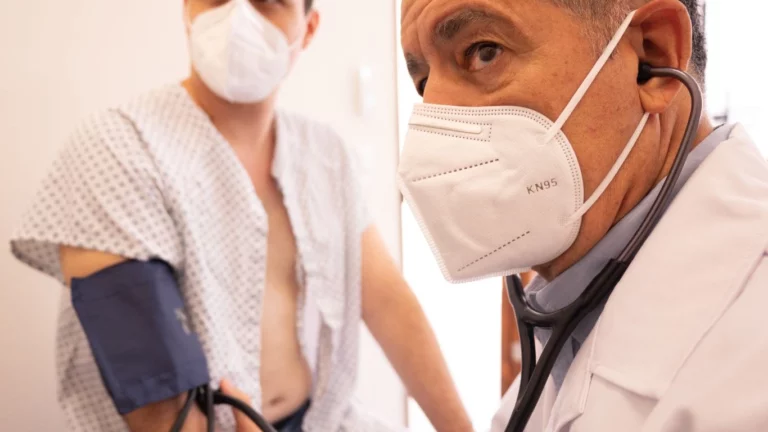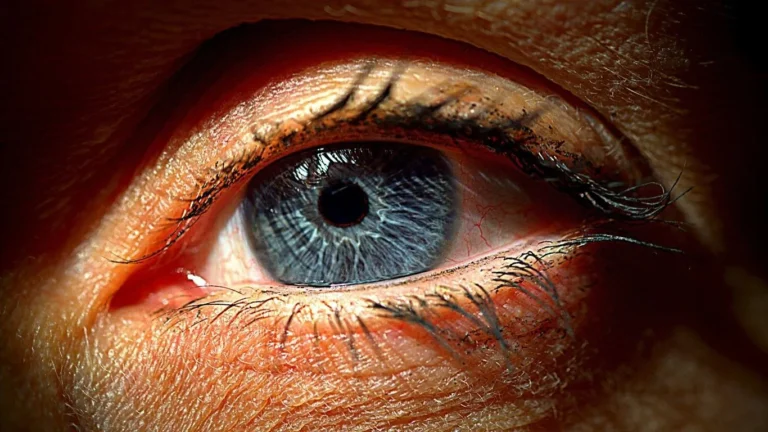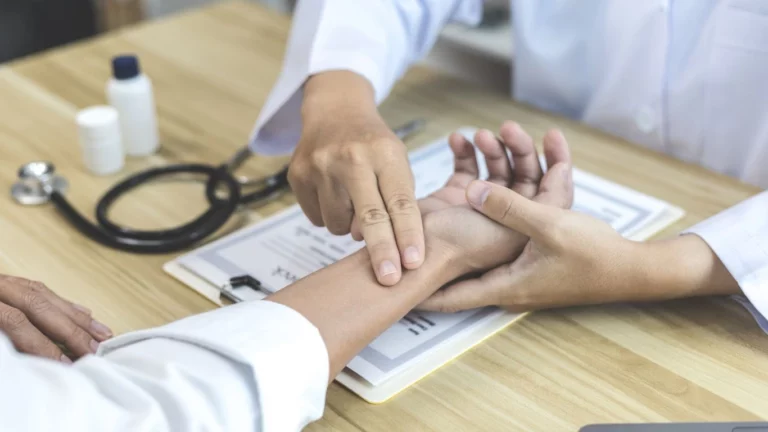Asthma Attack in Public Places: What You Need to Know and How to Handle It
If you or someone close to you has asthma, you know how unpredictable and potentially dangerous asthma attacks can be. And when one happens in a public place, it can be even more stressful. Don’t worry, though—this guide is here to help you understand what to do in case of an asthma attack in public, how to manage the situation, and how to prepare for the future.
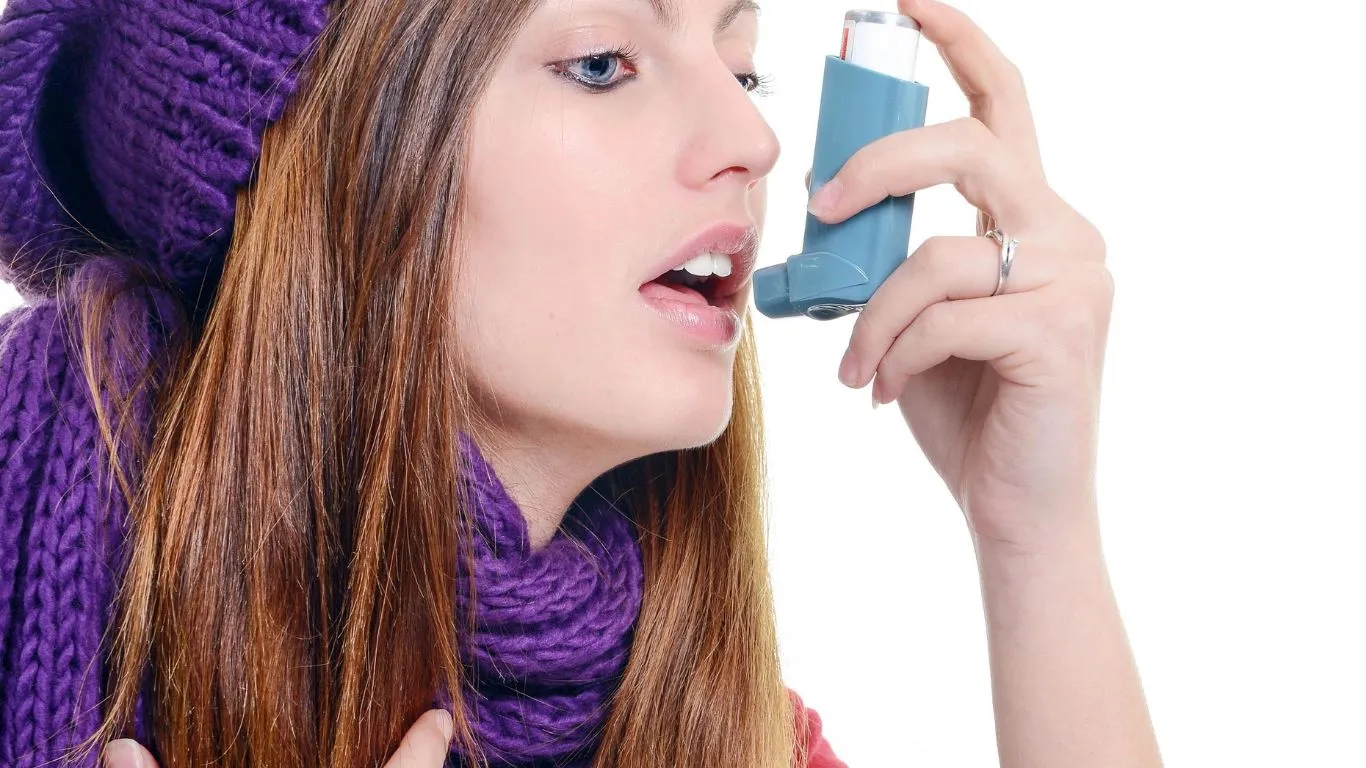
Why Public Places Are Challenging During Asthma Attacks
When you’re in a public place and having an asthma attack, you’re dealing with more than just the physical symptoms. There’s also the added stress of being around strangers, possibly feeling embarrassed, and worrying about how others will react. Plus, public spaces might have triggers that make things worse, like air pollution, pet dander, or even strong fragrances.  In these situations, it’s essential to stay calm and act quickly. Understanding what to do during an asthma attack can not only help you or the person having the attack but also help you support them if you’re a bystander. Let’s dive into what you can do when asthma strikes in a public setting.
In these situations, it’s essential to stay calm and act quickly. Understanding what to do during an asthma attack can not only help you or the person having the attack but also help you support them if you’re a bystander. Let’s dive into what you can do when asthma strikes in a public setting.
What to Do During an Asthma Attack in Public
The first thing to remember in any asthma attack situation is that staying calm is crucial. Panic can make breathing even harder, so keeping a level head is important for everyone involved. Here’s a step-by-step guide on how to manage an asthma attack when you’re in public:
1. Recognize the Symptoms
Before doing anything, it’s important to identify that an asthma attack is happening. Typical symptoms include:
- Shortness of breath
- Wheezing or coughing
- Tightness in the chest
- Difficulty talking or completing sentences
If you’re not sure whether it’s an asthma attack, remember that if someone with asthma starts experiencing these symptoms, especially if they have a known history of asthma, it’s a good idea to treat it as an emergency.
2. Find a Safe, Quiet Spot
If you’re able to move, try to get to a quieter, less crowded area. This will help reduce the number of potential asthma triggers like perfumes, smoke, or stress. It also helps the person having the attack to feel less overwhelmed.
3. Use a Rescue Inhaler
For most asthma sufferers, a rescue inhaler (often containing albuterol or a similar medication) can provide quick relief. If the person having the attack has one with them, make sure they use it as directed. The inhaler should be taken as soon as possible to help open up the airways. If you’re unsure how to help, assist them by ensuring they use the inhaler properly.
4. Encourage Slow, Deep Breathing
Encourage the person to breathe slowly and deeply through their nose, exhaling through pursed lips. This can help them regain control over their breathing. Make sure they sit upright to avoid putting too much pressure on the chest. It’s important to try and avoid talking too much, as it can worsen the situation.
5. Seek Medical Help If Necessary
If the symptoms don’t improve after using the inhaler, or if they worsen, it’s time to seek medical attention. Call emergency services immediately, as this could be a sign of a severe asthma attack, which may require a stronger treatment like corticosteroids or even hospitalization.
How to Prevent Asthma Attacks in Public Places
While you can’t always predict when an asthma attack will occur, there are steps you can take to reduce the chances of one happening in public:
1. Know Your Triggers
Asthma triggers vary from person to person, but common ones include pollen, smoke, dust, and cold air. By understanding your triggers, you can avoid situations where you’re more likely to experience an attack. If you know certain public places tend to trigger your asthma, it’s a good idea to limit your exposure or take extra precautions.
2. Carry Your Medication Everywhere
One of the most important things for anyone with asthma is to always carry their inhaler or other prescribed medications. It’s essential to have your medication with you at all times—whether you’re going to the store, a friend’s house, or a public event. This simple step can be the difference between a mild attack and a full-blown emergency.
3. Use a Mask in Crowded or Polluted Areas
In places with a lot of allergens, pollution, or dust (like busy streets or crowded indoor spaces), wearing a mask can help filter out harmful particles. This is especially helpful if you’re in an environment where you can’t easily control the air quality.
4. Check the Weather
Sometimes, weather can be a huge factor in triggering asthma. On days when the pollen count is high or the air quality is poor, it might be a good idea to stay indoors or take extra precautions when going out.
5. Educate Friends and Family
If you have asthma, make sure that the people around you, whether it’s family, friends, or colleagues, know what to do in case of an asthma attack. The more informed they are, the better they can help you if something goes wrong. 
Conclusion: Be Prepared, Stay Safe
Having an asthma attack in public doesn’t have to be a terrifying experience if you’re prepared. Knowing what to do and having the right tools on hand can make all the difference. Whether you’re the one dealing with asthma or you’re supporting someone else, staying calm, using medication as needed, and seeking help when necessary are all key to managing the situation effectively. 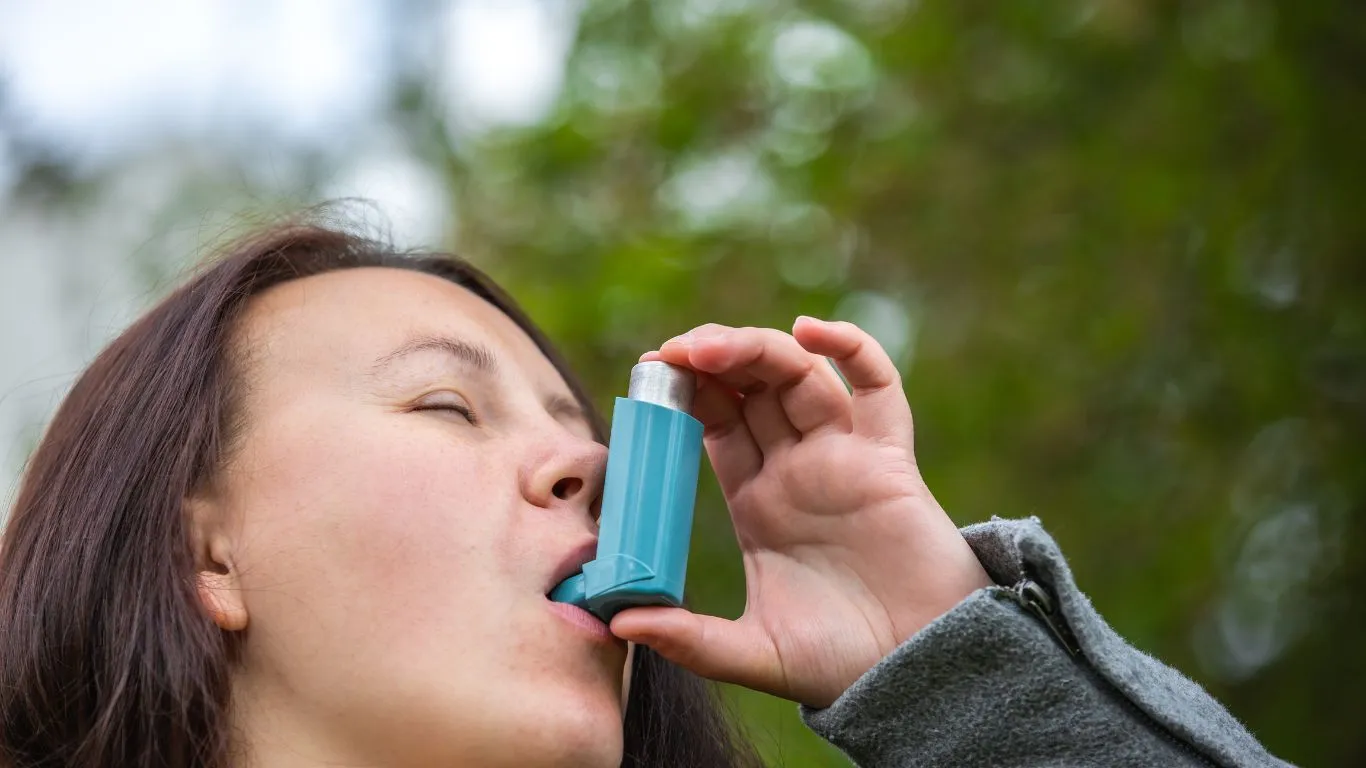
Appendices
References
For more information about asthma and its management, check out these resources:
- American Lung Association (2024). Asthma: What You Need to Know.
- Mayo Clinic (2023). Asthma Care and Management Guidelines.
- National Heart, Lung, and Blood Institute (2024). Asthma Overview.
FAQs
Here are some frequently asked questions about asthma attacks in public places:
- What should I do if I see someone having an asthma attack in public? If someone is having an asthma attack, help them sit up straight, encourage slow breathing, and assist them in using their inhaler if they have one. If symptoms don’t improve, call for emergency help.
- Can I still go to crowded places if I have asthma? Yes, but be mindful of potential triggers in crowded spaces, like strong smells or air pollution. Take your medication with you and try to avoid highly triggering environments.
- Are asthma attacks more common in public? Not necessarily, but public places may have more environmental triggers (like allergens or pollution) that could worsen asthma symptoms. Being prepared is the key.
- How do I know if I need to call an ambulance for an asthma attack? If the person is struggling to breathe even after using their inhaler, or if they can’t speak in full sentences, it’s important to call for emergency medical help immediately.
- Can stress trigger an asthma attack in public? Yes, stress can be a trigger for some people with asthma. It’s important to stay calm and take steps to reduce anxiety during an attack.
Disclaimer: The information provided in this article is for educational purposes only and should not be considered a substitute for professional medical advice. Always consult a healthcare provider or asthma specialist for advice regarding asthma management and treatment plans.

Bianca Nala is a compassionate Nurse Practitioner with a strong background in primary and respiratory care. As a health writer for Healthusias.com, she combines her clinical expertise with a talent for clear, relatable storytelling to help readers better understand their health. Bianca focuses on topics like asthma, COPD, chronic cough, and overall lung health, aiming to simplify complex medical topics without losing accuracy. Whether she’s treating patients or writing articles, Bianca is driven by a single goal: making quality healthcare knowledge accessible to everyone.


